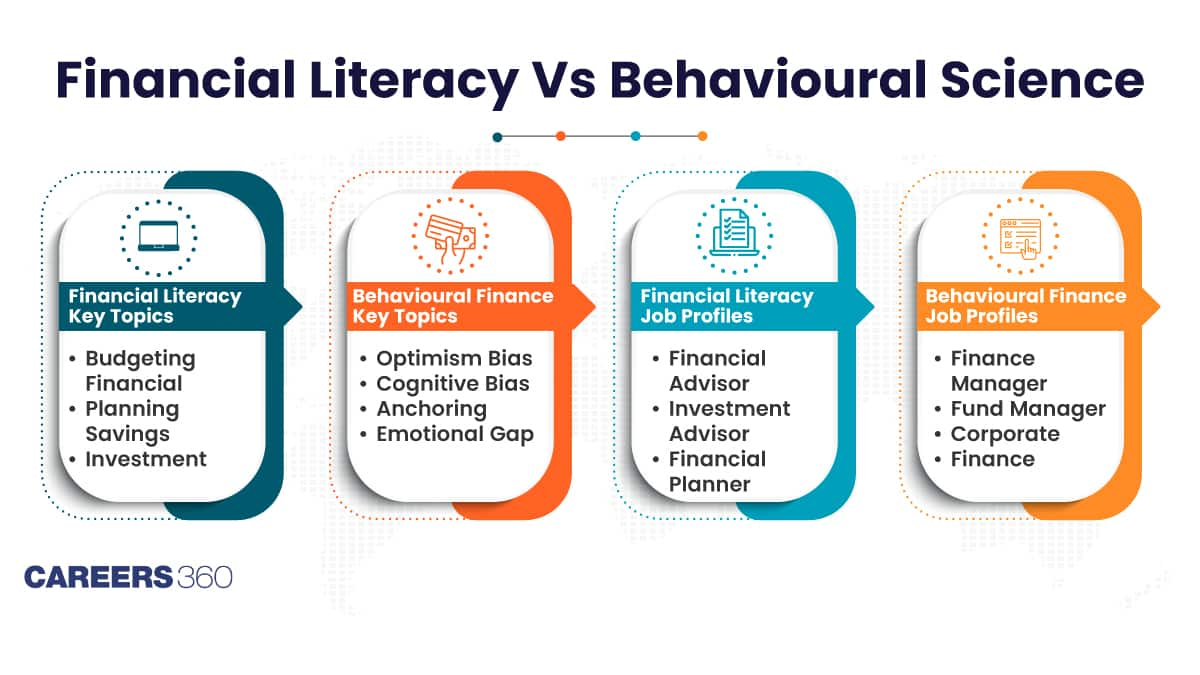MAHE Manipal M.Tech 2025
NAAC A++ Accredited | Accorded institution of Eminence by Govt. of India | NIRF Rank #4
Finance is an excellent discipline and offers a range of career opportunities to the individual. In the near future, the finance industry is expected to grow substantially. According to the United States Bureau of Labor Statistics, the overall employment in business and financial occupations is expected to grow faster than the average for the rest of the occupations from 2023 to 2033. On average, around 963,500 openings are projected each year due to employment growth.

Financial literacy and behavioural finance are excellent choices that can be opted by the student as there has been a steady rise in the demand for both courses. Financial Literacy, as the name suggests, provides knowledge of basic financial concepts and techniques that one must have to manage their finances. However, Behavioural Finance is an emerging discipline that combines psychology and finance disciplines and focuses on how human behaviour and psychology influence financial decisions.
Though both Financial Literacy and Behavioural finance courses are very different, they complement each other when it comes to financial education. Financial Literacy focuses on providing information related to basic financial tools and techniques. Some of the key focus areas of Financial Literacy are listed below.
NAAC A++ Accredited | Accorded institution of Eminence by Govt. of India | NIRF Rank #4
Behavioural Finance on the other hand, is important because it focuses on how human emotions and behaviour play a major role in financial decisions. Some of the important ones are fear, anger, greed, anxiety, and frustration. Listed below are the key topics covered in Behavioural Finance.
Financial Literacy is an important skill that one must have in order to attain financial independence. Financial literacy is not a sub-discipline of finance, unlike Behavioural Finance. However, it does help the applicants in almost all the job profiles relating to finance. Some of the popular career options one can opt for are listed below.
Behavioural Finance, on the other hand, is a sub-field of Behavioural Economics and aims to focus on behavioural and psychological aspects impacting financial decision making. Listed below are some of the career options.
To conclude, Financial Literacy and Behavioural Finance are both excellent courses in Finance. While both are very different, they complement each other in numerous ways. Financial Literacy provides basic knowledge of financial tools and techniques which is helpful in almost all finance disciplines. Similarly, behavioural finance aims to focus on the interrelationships between human psychology and financial decisions.
Application Date:11 November,2024 - 08 April,2025
B.Sc (Hons) Admissions 2025 Now Open | Ranked Among the Top 100 Universities in the World by QS World University Rankings 2025)
Ranked #1 Among all Private Indian Universities in QS Asia Rankings 2025 | Scholarships worth 210 CR
Ranked as India’s #1 Not for profit pvt. University by India Today
MSc Finance and MSc International Management Admissions 2025 Now Open | Ranked Among the Top 100 Universities in the World by QS World University Rankings 2025)
Ranked amongst top 3% universities globally (QS Rankings)
Among Top 30 National Universities for Engineering (NIRF 2024) | 30+ Specializations | AI Powered Learning & State-of-the-Art Facilities